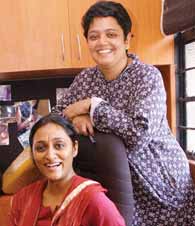Browse Executive Interviews
By Subject
- 21st Century Organization
- Blue Ocean Strategy
- Bottom of the Pyramid
- Brands and Branding
- Building Ethical Organizations
- Building High Performance Teams
- Business Model Innovation
- Business Process Outsourcing ( BPO )
- Business Schools and Business Ethics

- Change Management
- Co-Creation
- Collaboration
- Competing for Customers
- Corporate Entrepreneurship
- Corporate Social Responsibility ( CSR )
- Customer Relationship Management ( CRM )
- Decision Making
- Emerging Markets
- Executive Development
- Family Business
- Global Economy and Global Managers
- Global Strategy
- Government and Business
- Indian IT Industry
- Innovation
- Knowledge Management
- Knowledge Process Outsourcing ( KPO )
- Leadership
- Learning Organizations
- Level 5 Leadership
- Managing Complexity
- Managing Downturn without Downsizing
- Managing Troubled Times
- Marketing in a Downturn
- Midlife Crisis
- Multicultural Teams
- Organizational Loyalty
- Private Labels
- Rebranding Strategies of Bank of Baroda
- Reverse Innovation
- Social Cause Marketing
- Social Entrepreneurship

- Social Networking

- Staying on Top, Always
- Steve Jobs
- Strategy Execution
- Talent Management
- The China Factor
- The Making of a CEO
- Virtual World
- Why Good Companies Go Bad
- Women Entrepreneurs
- Women Executives
Publishing Year
Publishing Year
Interview with Vandana & Vaishnavi on Women ExecutivesAugust 2007 - By Dr. Nagendra V Chowdary |
|||||||||||||

Vandana & Vaishnavi is currently dedicated to the cause of homeless persons with mental illness through the various projects of "The Banyan". She has done her B.A in English literature from Women's Christian College, Chennai. Vandana Gopikumar has done M.A (Medical & Psychiatric Social Work) from Madras School of Social Work, Chennai. Vandana's narrative of how it all happened When visiting Vaishnavi, close friend and student in my old college, Women's Christian College, Chennai, I witnessed society's unconcern to the plight of a naked, mentally ill destitute woman in absolute distress outside the campus. While college authorities proved helpful, mental health institutions and NGOs were reluctant to admit this lady who was in desperate need of medical and psychiatric attention. When one finally agreed, a subsequent follow-up visit revealed her absence and the strong possibility of her being back on the streets. Three such instances over the next few months left us disillusioned. "The Banyan" germinated out of the conviction that the totally deprived—homeless, mentally ill have a right to timely treatment and a chance to a better future. The Banyanwas subsequently started after I finished my Masters in Social Work. Vaishnavi, soon dropped out of her MBA to join me. |
|||||||||||||
| |||||||||||||